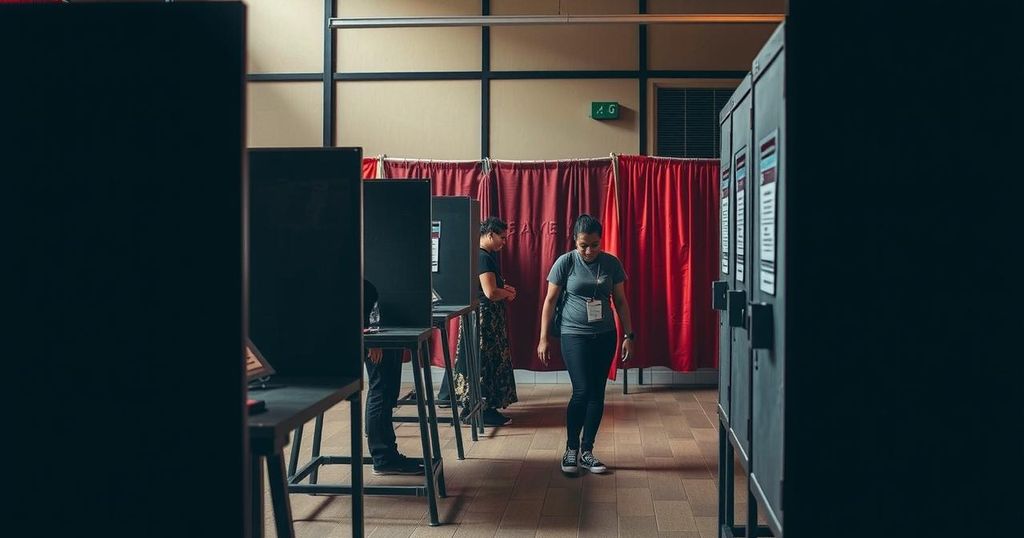Namibia Experiences Election Turmoil Amid Irregularities and Delays
Namibia’s elections have been marred by irregularities leading to an extension of polling periods. The Electoral Commission has cited logistical issues, resulting in significant delays and voter frustration. The IPC party is challenging Swapo’s long-standing dominance while addressing an increasingly disillusioned youth. The developments reflect broader challenges faced by former liberation parties in Southern Africa.
Namibia is currently experiencing significant election turmoil following an unexpected extension of presidential and parliamentary elections due to reported irregularities. The Electoral Commission of Namibia (ECN) announced that polling stations would remain open until Saturday night after admitting to logistical failures, including a lack of ballot papers and malfunctioning electronic devices, which contributed to long waiting times for voters. This situation has led to rising tensions as opposition parties seek to challenge the long-dominant South West Africa People’s Organisation (Swapo) in these elections.
The Independent Patriots for Change (IPC) party is aiming to end Swapo’s 34-year rule. IPC presidential candidate Panduleni Itula expressed concerns over the irregularities but urged citizens to continue voting as proposed by the ECN. He is contending against Swapo’s current Vice President, Netumbo Nandi-Ndaitwah, who aims to become Namibia’s first female president if she secures victory.
The overarching sentiment among voters is one of frustration. For instance, registered voter Nangombe Shitaleni, who has been attempting to vote, articulated his experience of waiting in line daily without success. Namibia, a former German colony that endured South African administration, has a fraught political history, especially concerning its majority population subjected to apartheid policies.
The ruling Swapo has maintained a strong grip on the political landscape since independence in 1990. However, Nandi-Ndaitwah faces challenges from a disillusioned youth demographic that is increasingly frustrated by economic disparities despite Namibia’s designation as an upper-middle-income nation by the World Bank. Observers are curious if Swapo will follow the path of other former liberation parties in Southern Africa, which have faced declines in voter support this year. This electoral crisis in Namibia parallels ongoing unrest in Mozambique, where claims of vote rigging have led to violent protests against the ruling Frelimo party.
The current election situation in Namibia highlights the complexities and challenges faced during this electoral period. Swapo, the ruling party since independence in 1990, was a central force in the anti-colonial struggle, but as times have changed, the party confronts rising pressures from younger voters who are dissatisfied with the economic conditions. The reported logistical delays during elections, including problems with ballot availability and electronic voting equipment, underscore systemic issues in the electoral process. Such challenges have ramifications not only for Namibia but also reflect broader trends observed in Southern African politics, where former liberation parties are increasingly scrutinized and, in some cases, rejected by the electorate.
In conclusion, Namibia’s current electoral turmoil, characterized by logistical failures and extended voting periods, has ignited tensions among voters and opposition parties. The IPC’s challenge to the longstanding dominance of Swapo signals a shift in the political landscape, as a younger demographic seeks change amidst economic frustrations. As the situation unfolds, the responses from voters and government institutions will be crucial in shaping the future of Namibian democracy and governance.
Original Source: www.aljazeera.com




Post Comment